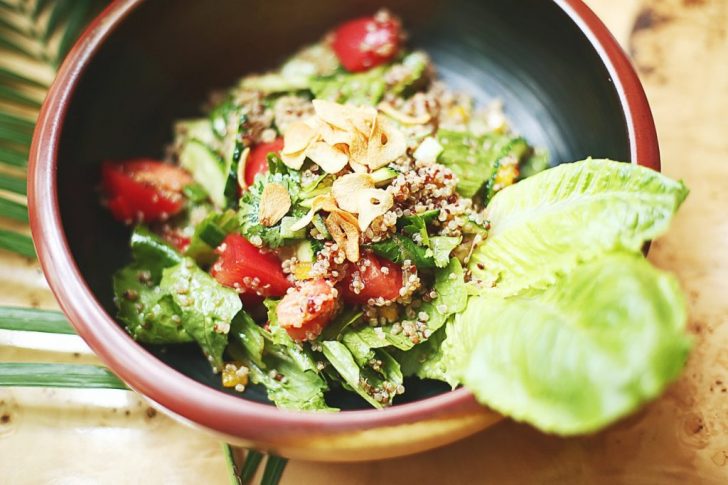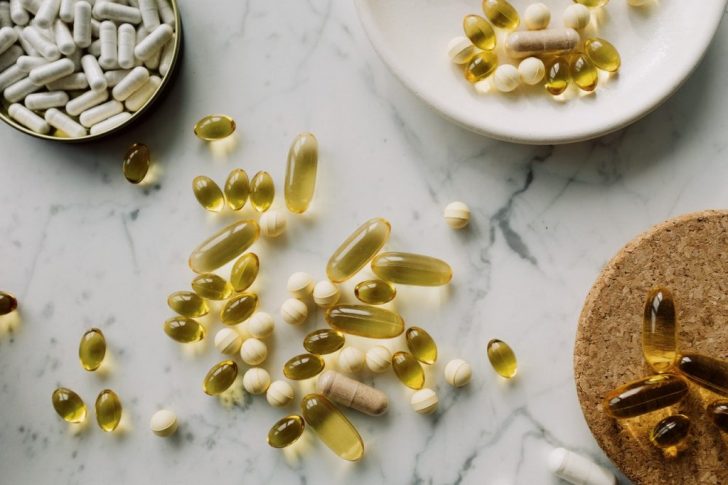
High-Priority Pregnancy Food Rules to Pay Attention to

Healthy eating is difficult, and even more so when a new life is developing inside you. Nutritionists generally recommend the consumption of a balanced diet with nutrient-rich items but, once you’re pregnant, this becomes absolutely crucial. While the “eating for two” myth has no grounds in reality, you do have to provide sufficient nourishment to the fetus for healthy growth.

Pexels | Ensure your body gets the nutrients it needs
Pregnancy Nutrition Basics
In all truthfulness, a pregnancy diet isn’t far off from a regular healthy diet. The tenets for all sorts of healthy eating remain pretty much standard. Basically, you should focus on consuming nutrient-rich items such as vegetables, fruits, whole grains, lean meat, fish, and poultry. Simultaneously, items you must avoid include junk food, foods with added sugars, and trans-fats.
If you’ve already boarded the healthy-diet wagon, you’re all set for the journey.

Pexels | Pregnancy requires healthy food consumption
Additional Pregnancy Nutrients
While your body does a great job of providing the baby with most of the nutrients required for healthy growth, there are a couple you’d have to intake more than usual. These include:
1. Folic Acid
Folic acid is an artificial source of a B vitamin called folate. The vitamin is vital for the baby’s development as it protects from issues in the neural tube. It is this part of the embryo that further develops into the brain and spinal cord. Such defects can develop early on in the pregnancy so, and doctors recommend women start taking them when they start trying to conceive.
2. Choline
This nutrient plays a vital role in the baby’s brain development and helps protect them from common birth defects. The substance isn’t normally found in prenatal vitamins but is found naturally in large amounts in food items such as beef, chicken, eggs, animal liver, peanuts, milk, etc. Small amounts of choline are also found in vegetarian options such as cruciferous vegetables, potatoes, whole grains, and seeds.
3. Vitamin D, C, and Calcium
These nutrients combinedly play a major role in the formation of bones. In fact, if you don’t intake enough calcium, your baby will suck its requirements from your bones. Additionally, Vitamin C aids in the development of the immune system, and Vitamin D helps with eye and skin development.
4. Iodine
Another necessary ingredient for the development of fetal bones and the brain is iodine. If your consumption is low, look towards sources like eggs, dairy, shellfish, saltwater fish, seaweed, and soy milk. Table salt in the USA normally has iodine added to it. However, if you prefer kosher or sea salt, you’d have to look to other sources to fulfill your requirement.
5. Iron
Oxygen is transported in your blood through a mineral called Iron. Since your body is tasked with making extra blood to fulfill your growing baby’s requirement, insufficient amounts of the mineral can cause iron-deficiency anemia.

Pexels | Most of the above nutrients can be found in vitamin supplements
Bottom Line
Regardless of pregnancy, the above-mentioned vitamins are highly necessary for healthy development and life. Try to ensure that you keep up with recommended vitamin doses of prenatal and postnatal periods, and otherwise.
More in Health & Well-being
-
`
5 Effective Ways to Provide Support for Mental Wellbeing in 2024
In a fast-paced world where stress and anxiety seem to lurk around every corner, prioritizing mental wellness has become more crucial...
March 11, 2024 -
`
6 Innovative Strategies to Cultivate Meaning in Your Life
Have you ever pondered the essence of your existence, the very fabric that weaves the tapestry of your life? Each of...
March 4, 2024 -
`
5 Essential Questions You Must Ask Your Couples Therapist
What Is Your Experience and Specialization in Couples Therapy? Imagine you are hiring a chef. You would not want someone whose...
February 26, 2024 -
`
Celebrity Exes Who Are Still on Friendly Terms!
Celebrity breakups are often messy affairs that play out in the public eye, with tabloids and social media outlets speculating on...
February 22, 2024 -
`
Financial Wellness Retreats: Combining Vacation and Money Management Education
In today’s modern world, where the hustle of everyday life often leaves little room for personal development, especially in areas like...
February 14, 2024 -
`
Understanding OCD: Symptoms, Causes, Diagnosis, and Treatment
In the vast tapestry of the human experience, few conditions have intrigued and perplexed us like Obsessive-Compulsive Disorder (OCD). Characterized by...
February 13, 2024 -
`
How Tiny Lifestyle Changes Can Help Overcome Bipolar Disorder
Bipolar disorder is a condition marked by extreme mood swings. It can often make life seem like an unpredictable journey. However,...
February 6, 2024 -
`
The Role of Relationships in Retirement: Marriage, Cohabitation, and Financial Futures
Picture this: you’ve finally retired. The sun-drenched beaches, leisurely mornings, and long-awaited freedom beckon. But amidst the celebratory buzz, a silent...
January 30, 2024 -
`
How to Keep Your Towel Always Fresh & Smelling Great? 5 Creative Tips
Use Vinegar and Baking Soda AS Detergents Forget about the fancy detergents. Sometimes, the simplest solutions are right in your pantry....
January 22, 2024















You must be logged in to post a comment Login